2015: Bad time for civic, political rights
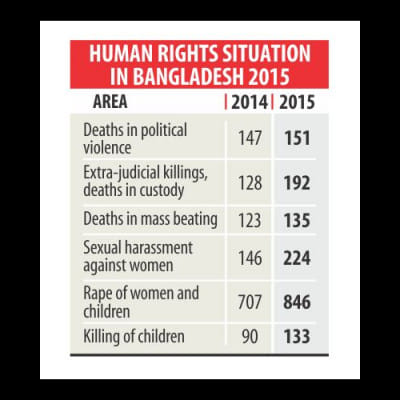
Human rights situation in Bangladesh worsened on civic and political fronts last year despite improvement in some socio-economic indicators, according to a report of Ain o Salish Kendra.
“The overall human rights situation in 2015 was alarming,” ASK Executive Director advocate Sultana Kamal told reporters at Dhaka Reporters Unity while presenting the Review of Bangladesh's Human Rights Situation, 2015.
The ASK prepared it based on media reports, dividing the human rights situation in two categories -- civic and political rights, and economic, social and cultural rights.
It mentions that the UN Food and Agriculture Organization termed Bangladesh the most successful country in South Asia in the areas of agriculture and food security. Bangladesh has also been recognised as a lower-middle income country due to an increase in per capita income.
Besides, implementation of the land boundary agreement with India is a notable progress, says the report.
Some positive developments on civic and political fronts include the progress in the trial of crimes against humanity, the enactment of Formalin Control Act, Bangladesh Energy and Power Research Council Act, Bangladesh Public-Private Partnership Act, the framing of labour regulations, and the approval of domestic workers protection policy.
However, human rights indicators worsened in many other areas, it says.
POLITICAL VIOLENCE, LAW AND ORDER
The BNP-led 20-party alliance began a countrywide strike and blockade as the ruling party didn't allow the alliance to hold a rally on January 5 to raise its demands for cancelling the January-5 polls of 2014 and for holding fresh elections.
The blockade continued for two months when arson attacks claimed the lives of at least 70 people, mostly commoners, the report says, adding that at least 812 incidents of political violence occurred last year.
EXTRA-JUDICIAL KILLINGS, CUSTODIAL DEATHS
While common people were getting killed in political violence, various state forces got involved in abduction, forced disappearances and extra-judicial killings in the name of crossfire and encounter that continued throughout the year, said Sultana Kamal.
In 2015, six people died in custody of law enforcers and five during arrest, while three committed suicide after arrest, the report says.
Besides, 68 people died in jail custody. And a number of people became disabled after being shot allegedly by law enforcers. The authorities, however, always denied such allegations, it adds.
DISAPPEARANCE, SECRET KILLING
Many families alleged that men identifying themselves as members of law enforcement agencies picked up their relatives.
Last year, at least 55 people fell victims to forced disappearance. Of them, bodies of eight were recovered later, seven were shown arrested, and five returned to their families. The whereabouts of the rest still remain unknown.
The authorities, however, have neither issued any statements on such incidents nor did they initiate any investigation, the report says.
REPRESSION ON RELIGIOUS MINORITIES
“Rise of religious extremism in 2015 was a matter of grave concern,” said Sultana Kamal.
Besides, killing of foreigners, death threats to Christian priests, bomb attacks on Hossaini Dalan in the capital and Ahmadiyya mosque in Rajshahi, and a gun attack on Bogra Shia mosque created a sense of anxiety among people, she said.
Last year, criminals vandalised and set fire to 104 houses and Hindu temples, and destroyed 213 idols across the country.
FREEDOM OF EXPRESSION
Referring to the killing of a number of free-thinkers, bloggers and writers, the report says this trend was a matter of concern last year.
Besides, progressive politicians, intellectuals and journalists received death threats.
The government tried to control the freedom of opinion through legal means, and showed a tendency to harass people through the Information and Communication Technology Act 2006 (amended in 2013), says the report.
Three journalists were killed and 18 others suffered repression at the hands of law enforcers. And a total of 244 journalists fell victims to violence last year, the ASK says.
“Practically, the opposition was not allowed to hold any rallies. Opposition leaders and activists were arrested on various grounds, and were not given bail. Thus, they were denied basic rights,” said Sultana Kamal.
The biggest humanitarian crisis in 2015 was the trafficking of Bangladeshis through the Bay of Bengal and discovery of mass graves in Malaysian and Thai borders, she added.
POLITICAL VIOLENCE, CASES AND TRIAL
The most burning issue of 2015 was political violence during the blockade in the first quarter of the year.
More than 400 cases were filed in connection with political violence throughout the year. Of those, 200 were lodged in the first quarter, and thousands of people were accused in those.
Sultana Kamal said these cases could not make progress because they were identified as “political”. “The actual criminals responsible for such incidents always remain behind the curtain.”

 For all latest news, follow The Daily Star's Google News channel.
For all latest news, follow The Daily Star's Google News channel. 

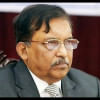
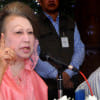
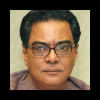
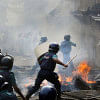


Comments